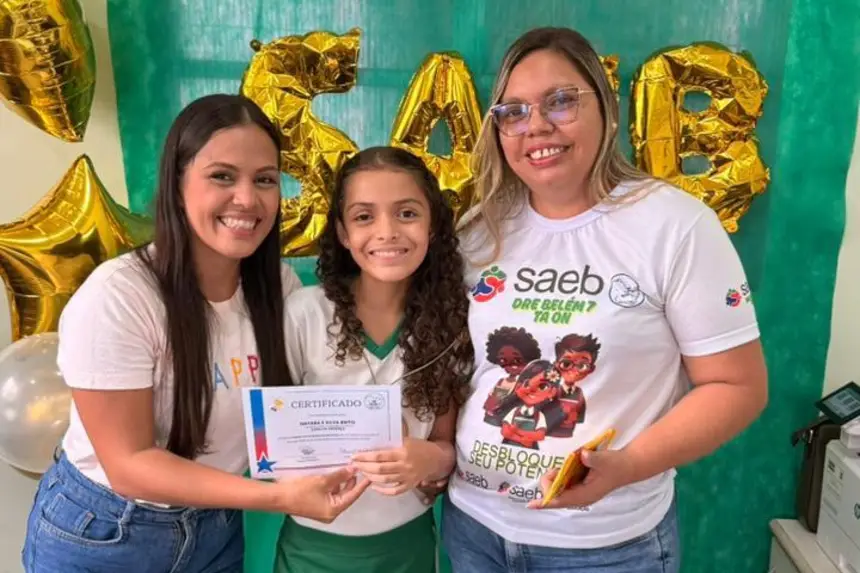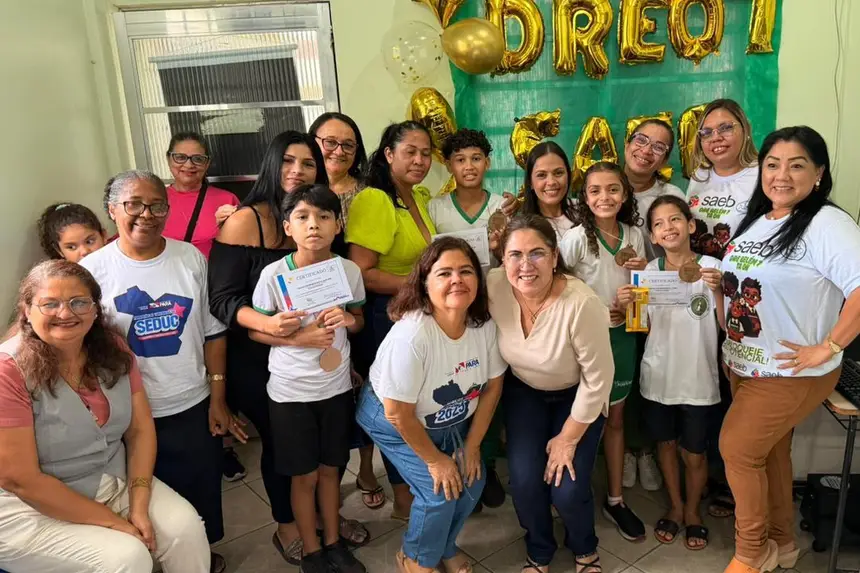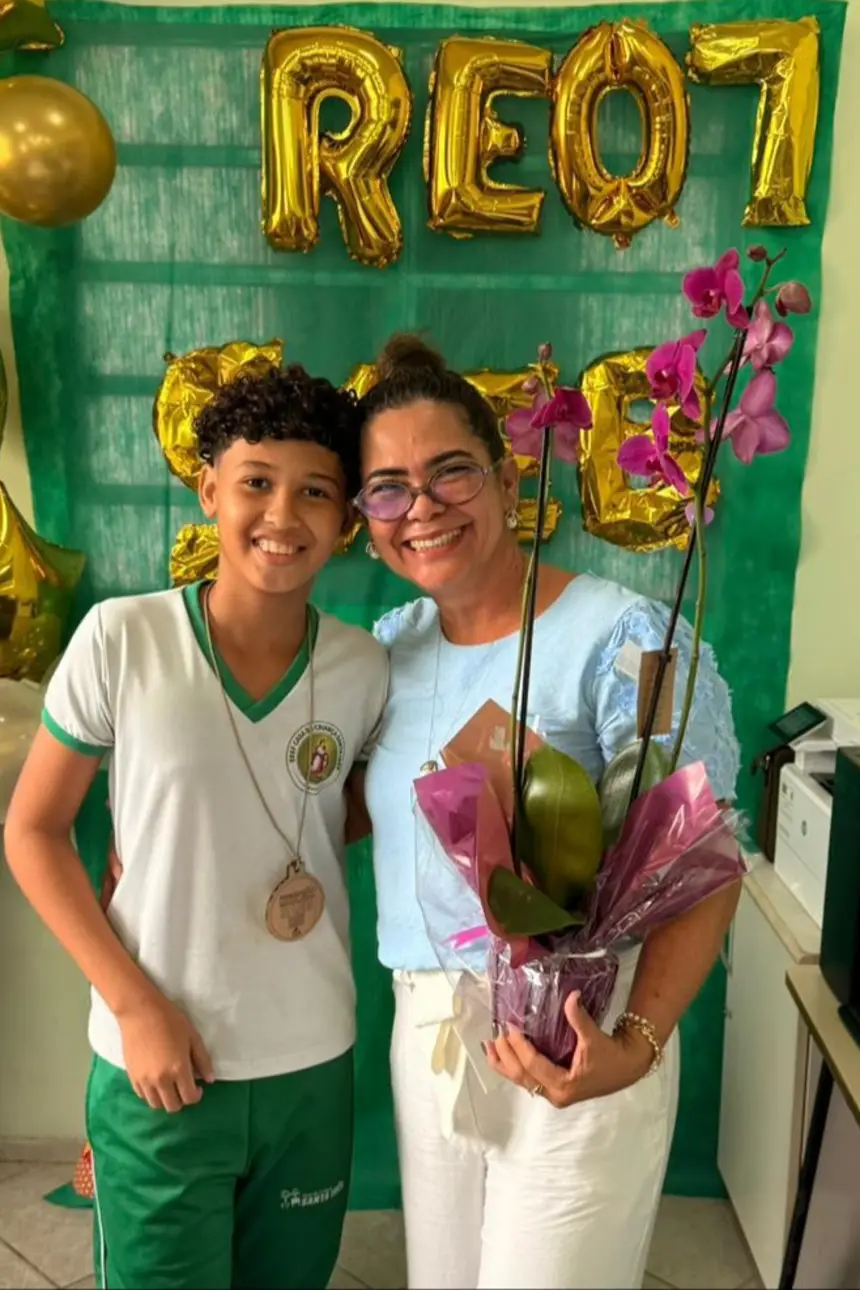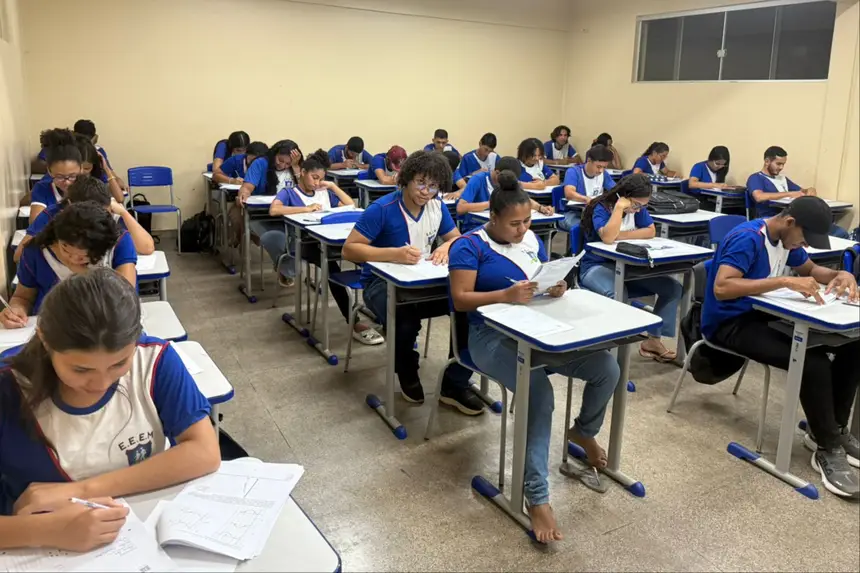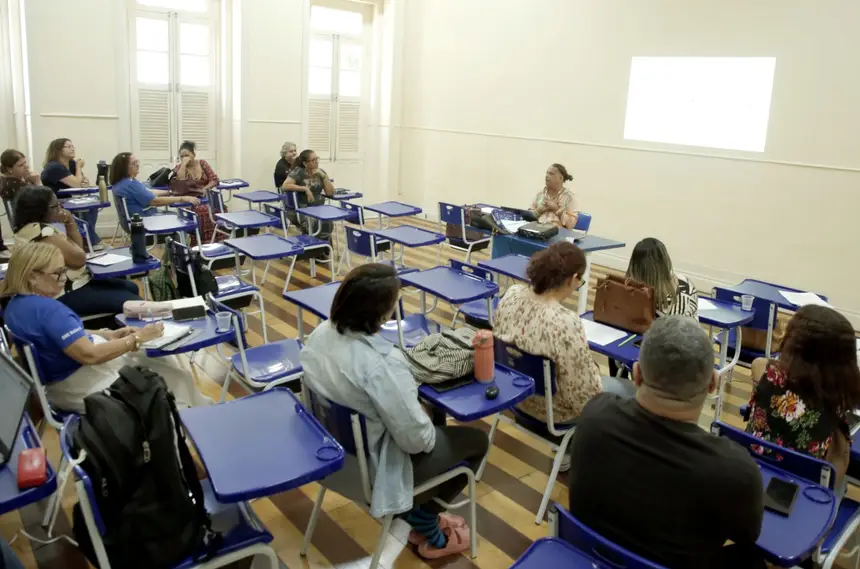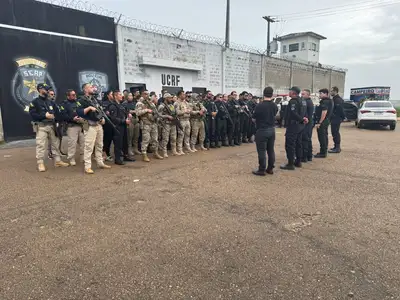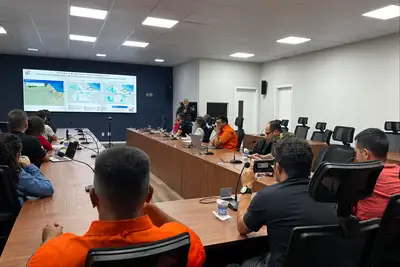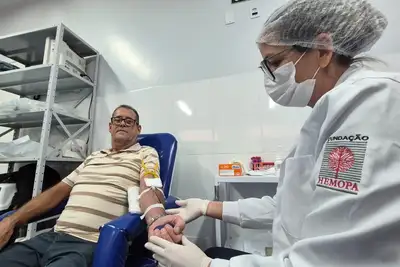Seduc promotes various actions and strategies in preparation for Saeb 2025
Mobilization, training, and appreciation of professionals throughout the State to strengthen learning and raise educational indicators were some of the actions
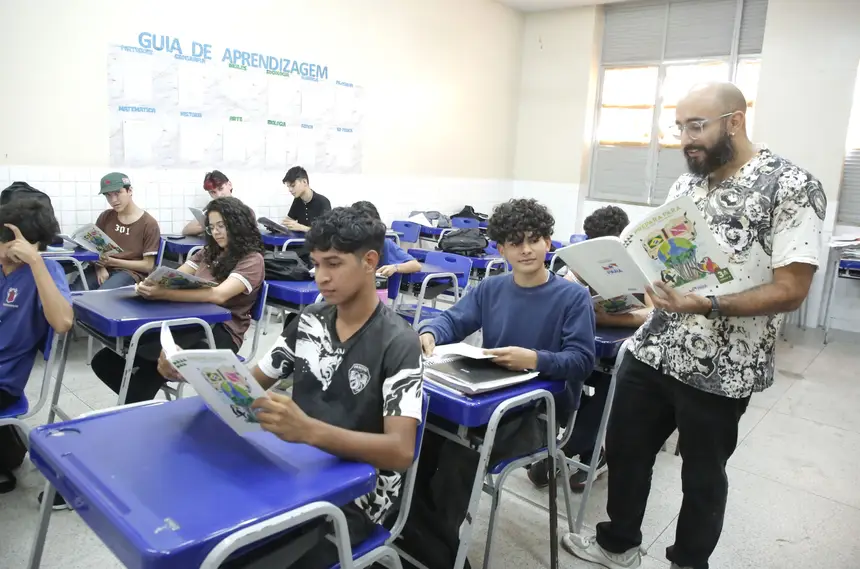
On the eve of the application of the Basic Education Assessment System (Saeb) test, which takes place from October 20 to 31, the State Department of Education (Seduc) intensified mobilization and encouragement, reinforcing pedagogical work and student engagement with the application of mock tests, large classes, playful activities, educational trips, and motivational campaigns in schools.
In 2025, Seduc has developed a series of actions and strategies aimed at preparing the state network for Saeb, involving managers, teachers, students, and, mainly, the recomposition of learning, with the goal of consolidating the advancement of public education in Pará and raising student performance in national assessments.
For the Deputy Secretary of Basic Education, Júlio Meirelles, the joint effort of the school community and the commitment to advancing educational indicators is essential. “We are approaching the application of Saeb, and the first word that comes to mind is gratitude. Gratitude to all education professionals who gave their best throughout this process. It has been months of mobilization, engagement of families and students, use of the teaching material acquired by the secretariat, participation in mock tests, and focused work on priority descriptors.”
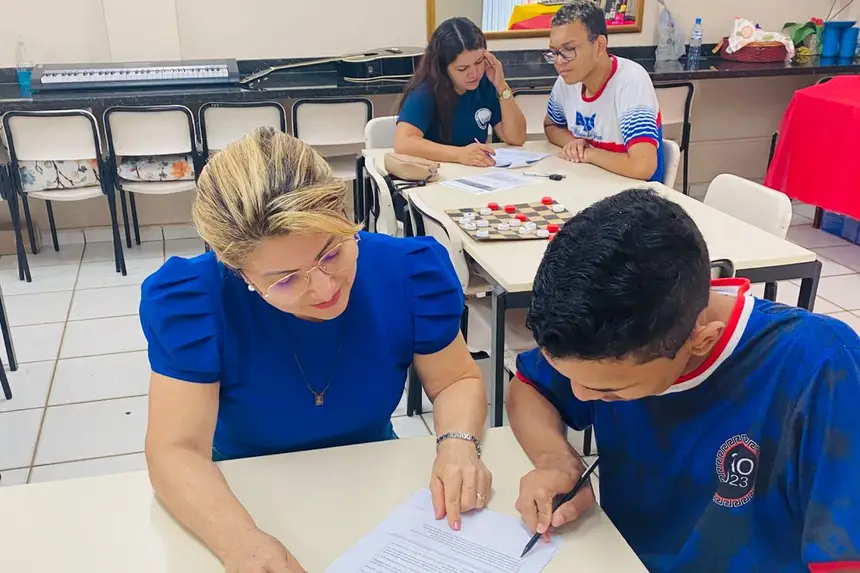
Mobilization and engagement of the network - The movement began in the first semester, with cycles of lectures aimed at directors and teams from the Regional Education Directorates (DREs). In addition, the “Saeb D-Day” was implemented to strengthen and engage school communities through seminars that highlighted successful practices from schools.
The initiatives were fundamental in inspiring other units and reinforcing the collective commitment to learning, as well as symbolic certifications to recognize the efforts of DREs, schools, and students.
As part of the preparation, strategies for the recomposition of learning focused on diagnosing and reinforcing the contents of Portuguese Language and Mathematics, areas assessed by Saeb, were strengthened.
With guidance from the Deputy Secretary of Basic Education, each school aligned its specific action plan based on results from internal assessments with the support of Educational Monitoring Technicians (TAPs) and regional coordinators for monitoring goals.
Schools also expanded academic reinforcement during regular hours, after school, and on Saturdays, prioritizing students who showed greater learning gaps.
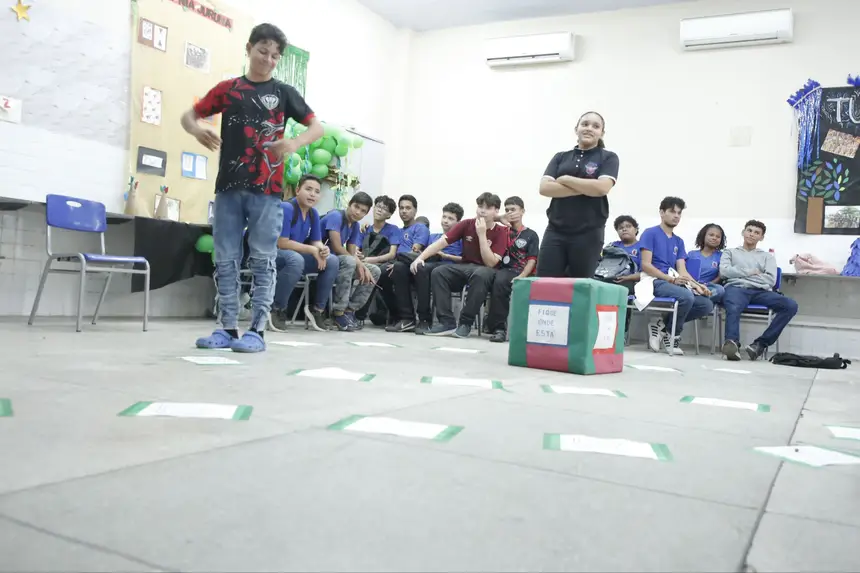
Teacher and manager training - Continuous training was one of the pillars of the work developed throughout the year. Through the Center for Training Basic Education Professionals of the State of Pará (Cefor), Seduc promoted 581 decentralized training sessions across all regions of the State, serving 18,502 teachers.
The initiative was complemented by the Saeb Caravan, which traveled across Pará training 3,039 professionals, including managers, school directors, vice-principals, and DRE technicians.
The training sessions addressed methodologies for the recomposition of learning, analysis of results, and pedagogical strategies aimed at improving student performance.
Pedagogical resources and innovation - The use of structured materials was another differentiator. State schools utilized the Prepara, Prepara Mais, the Complementary Activities Notebook, and the Learning Recomposition Notebook, in addition to digital tools and the pedagogical use of Chromebooks. These resources assisted in the recovery of essential skills and in practicing activities aimed at proficiency in reading, writing, and problem-solving.

Appreciation and recognition of professionals - The “School that Transforms” Program, created by the State Government, has established itself as the largest bonus program in Pará's education.
In 2023, the initiative benefited 40,000 servers who directly contributed to the advancement of the Basic Education Development Index (Ideb), when Pará rose from 26th to 6th place nationally.
For 2025, the program plans to invest R$ 313 million, with bonuses that can reach 3.5 additional salaries per school, according to individual growth targets in Ideb. Payment is scheduled for October 2026, after the official announcement of the results.
Regional actions - The Regional Education Directorates (DREs) played an essential role in this process. In DRE Belém 7, actions included large classes, workshops, collective mock tests, and internal caravans that brought school pedagogical teams closer together.
Students who excelled received certificates and medals made by the Center for Innovation and Sustainability in Basic Education (Ciseb), as well as scholarships for preparatory courses offered in partnership with private institutions.
Director Geovânia Paiva highlighted that the strength of the work lay in the unity and commitment of the teams. “We believe in an educational process that prioritizes the human being, formed by managers, teachers, and students, rethinking the present for a better future,” she stated.



